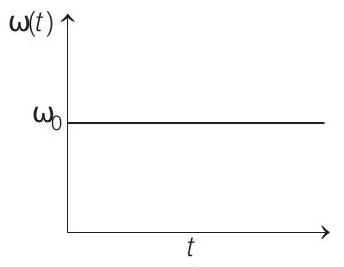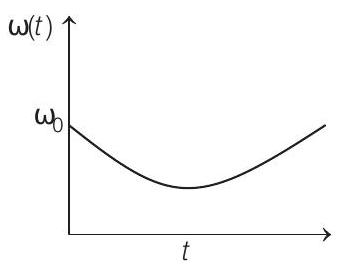Rotation 2 Question 9
9. A circular platform is free to rotate in a horizontal plane about a vertical axis passing through its centre. A tortoise is sitting at the edge of the platform. Now, the platform is given an angular velocity
(2002)

(a)

(c)

(b)

(d)
Show Answer
Answer:
Correct Answer: 9. (c)
Solution:
- Since, there is no external torque, angular momentum will remain conserved. The moment of inertia will first decrease till the tortoise moves from

Let
Moment of inertia when the tortoise is at
and moment of inertia when the tortoise is at
From conservation of angular momentum
Substituting the values, we can see that variation of






